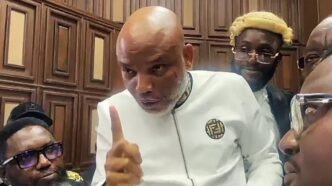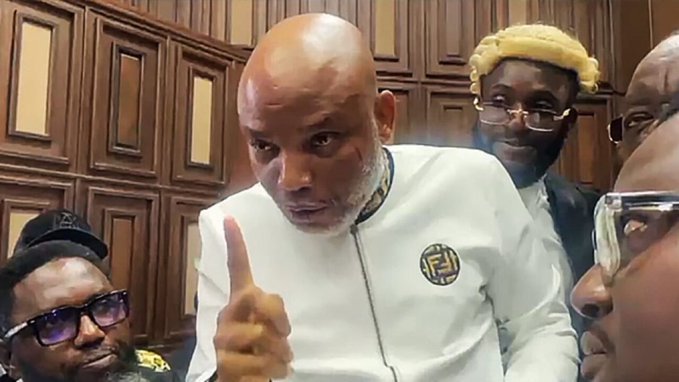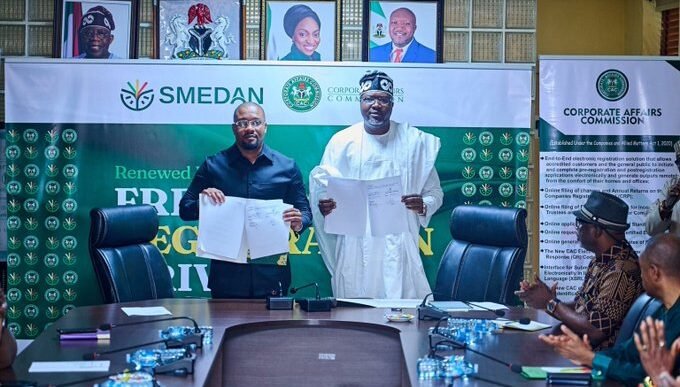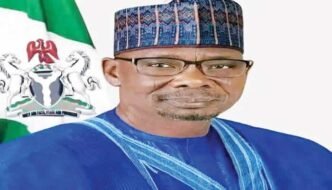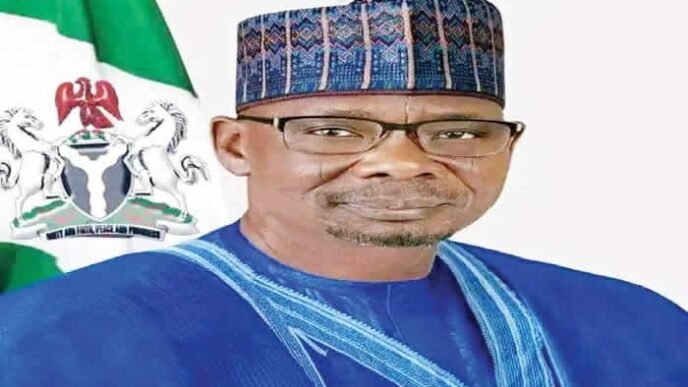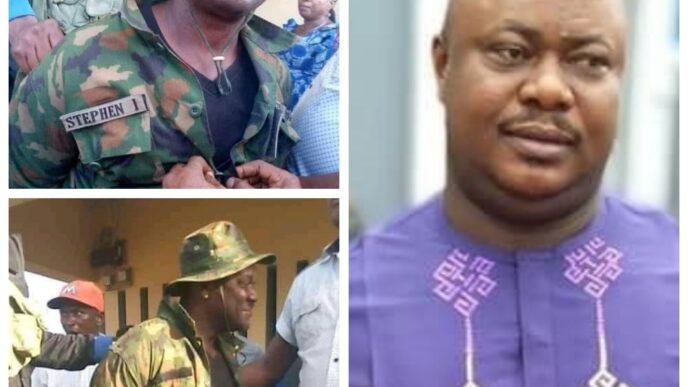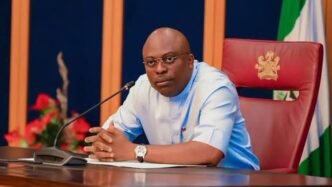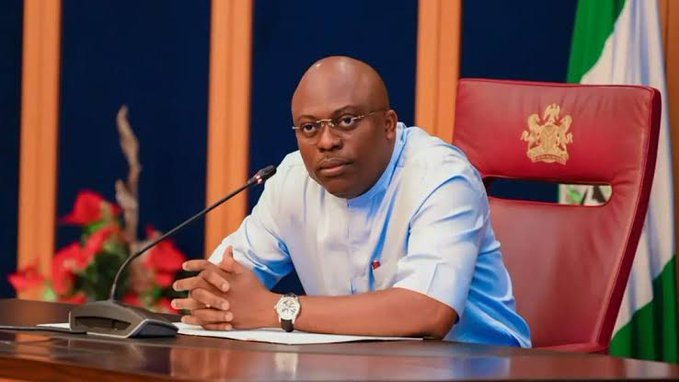In a major legal development, a Federal High Court in Abuja has rejected the plea filed by the detained leader of the Indigenous People of Biafra (IPOB), Mazi Nnamdi Kanu, seeking his transfer from the custody of the Department of State Services (DSS) to the National Hospital, Abuja, for medical treatment. The ruling, delivered on Thursday, has once again ignited debates across Nigeria’s political and legal spaces regarding human rights, judicial discretion, and the broader implications of Kanu’s continued detention.
The decision comes at a time when issues surrounding his health and trial have dominated public discourse, drawing the attention of both local and international observers.
The Court’s Decision
Justice Binta Nyako, presiding over the case, dismissed the application for transfer on grounds that the IPOB leader is receiving adequate medical attention under the supervision of the DSS. The court ruled that the application lacked merit and that there was no compelling evidence to support the claim that the DSS was incapable of handling Kanu’s health needs.
According to the judge, transferring Kanu to the National Hospital could pose significant security risks, considering his profile and the sensitivity of his case. She stressed that the DSS has consistently presented medical reports to the court, confirming that he has been undergoing treatment from certified medical personnel while in custody.
The ruling effectively sustains Kanu’s continued confinement in DSS facilities pending further developments in his trial, which has been ongoing for years.
Nnamdi Kanu’s Plea
Kanu’s legal team had argued that the IPOB leader’s health condition required urgent and advanced medical attention that could not be adequately provided within DSS detention facilities. His lawyers emphasized that the National Hospital, Abuja, being a public health institution, was better equipped to handle his medical complications.
In their submission, the defence team alleged that their client’s health was deteriorating due to prolonged detention, restricted access to specialist doctors, and inadequate facilities. They also cited international human rights conventions, stressing that denying him access to comprehensive medical treatment violated his fundamental rights.
Despite these arguments, the court maintained that the DSS had not breached any laws in handling Kanu’s medical needs.
DSS and Government’s Position
The DSS, on its part, has consistently maintained that Nnamdi Kanu is in stable condition and is receiving adequate medical care. The agency accused his lawyers of attempting to use health grounds as a tactic to secure his release from custody or to complicate the trial process.
Government lawyers also raised concerns that granting such a transfer could encourage unrest and insecurity in the Federal Capital Territory, Abuja. With IPOB supporters frequently mobilizing around issues concerning Kanu’s detention, security agencies warned that the move could trigger protests or potential violent confrontations.
Public Reactions
The ruling has sparked strong reactions from across Nigeria. While some Nigerians, particularly in the South East, have expressed disappointment over the court’s decision, others argue that the ruling demonstrates the independence of the judiciary and the need to uphold national security concerns.
Pro-Biafra groups described the ruling as “unjust” and accused the Nigerian government of deliberately endangering Kanu’s life. Social media platforms have been flooded with comments from IPOB supporters, many of whom claim that the court’s refusal reflects political interference in the judicial process.
Conversely, government supporters argue that the court has acted responsibly in refusing to create a precedent that could jeopardize the country’s security framework. They insist that Kanu’s medical needs are being met and that the clamour for his transfer is politically motivated.
Human Rights Concerns
Human rights advocates and legal experts are divided on the ruling. Some lawyers argue that the court should have prioritized the right to health and life above security concerns, noting that Nigeria is bound by several international treaties guaranteeing detainees’ rights to adequate medical care.
Others counter that the judge’s decision aligns with the principle of balancing individual rights against public safety. They argue that Kanu’s case is unique due to its political sensitivity, ongoing separatist tensions, and the violent clashes previously associated with IPOB activities.
Broader Implications
The denial of Nnamdi Kanu’s plea underscores the complexities surrounding his trial, which has been dragging on for years amid repeated adjournments, appeals, and counter-applications. Beyond the courtroom, the case continues to test Nigeria’s democratic institutions, particularly in areas of human rights, rule of law, and federal stability.
For many in the South East, Kanu symbolizes resistance against what they perceive as systemic marginalization. His detention has become a rallying point, leading to weekly sit-at-home protests that disrupt economic activities across the region. Critics argue that continued denial of his requests, including medical transfers, risks further alienating the population and fueling separatist sentiments.
On the other hand, the Federal Government maintains that Kanu must face justice for charges including terrorism, treasonable felony, and incitement. Officials believe that handling the case firmly will send a clear message that no individual or group is above the law.
The Way Forward
The court’s ruling does not mark the end of the road for Nnamdi Kanu’s legal team. His lawyers are expected to file fresh applications or possibly appeal the decision in higher courts. Meanwhile, IPOB and pro-Biafra groups are likely to intensify calls for his release, citing concerns over his health and human rights.
Observers believe the Federal Government faces a delicate balancing act: ensuring Kanu faces trial while managing the political and security fallout of his continued detention. Calls have also intensified for dialogue and political solutions, with some stakeholders urging the government to explore alternative dispute resolution mechanisms to address the grievances of the South East.
Conclusion
The rejection of Nnamdi Kanu’s plea for transfer to the National Hospital, Abuja, represents another critical turning point in his long-running legal battles with the Nigerian state. While the court insists that the DSS can provide sufficient medical care, critics argue that the decision raises serious questions about justice, fairness, and the protection of fundamental rights.
As the trial continues, the case will remain a focal point for debates about Nigeria’s unity, its handling of dissent, and the delicate intersection between national security and individual freedoms. For now, Kanu remains in DSS custody, and the battle over his health and freedom continues to shape national discourse.

